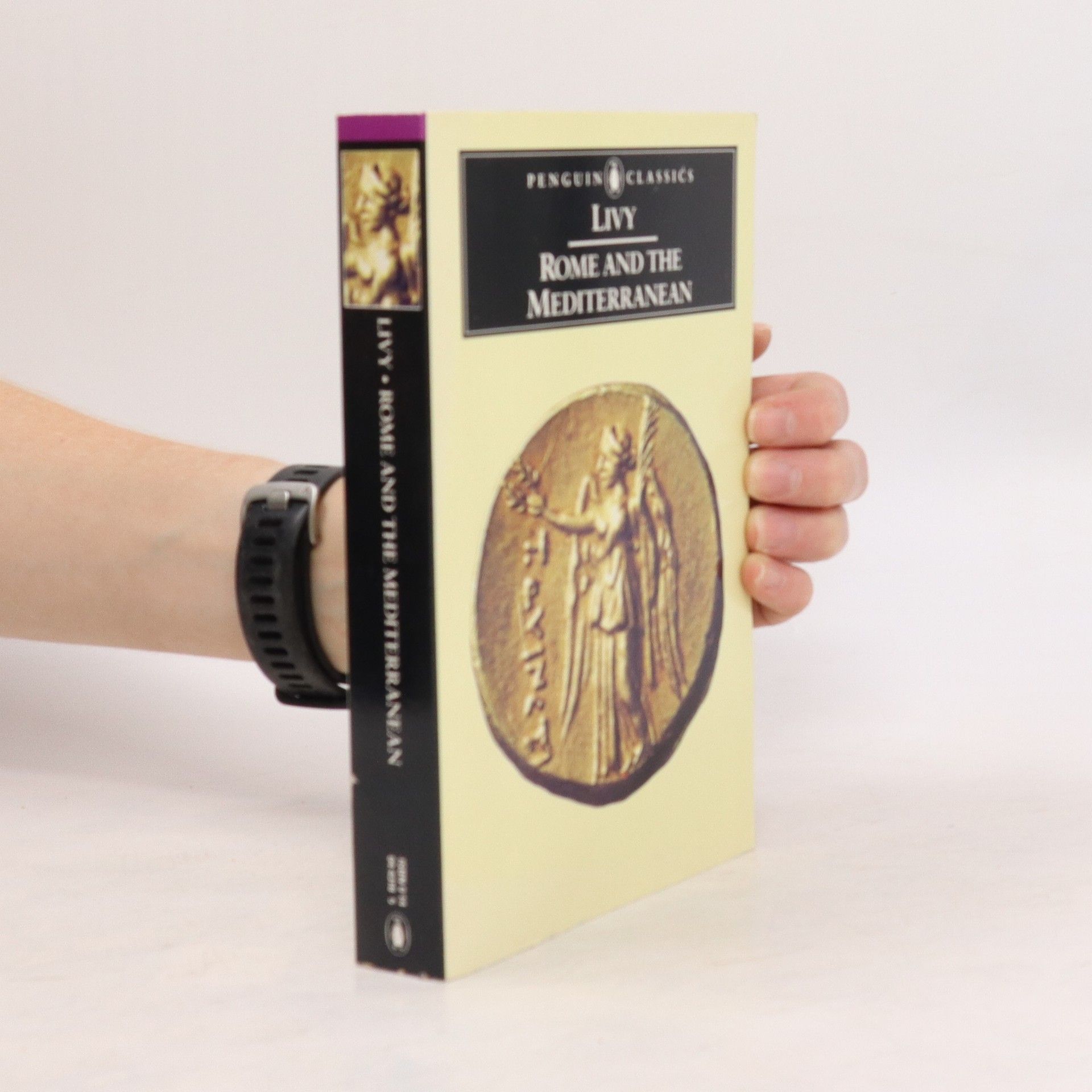The only extant work by Livy (64 or 59 BCE 12 or 17 CE) is part of his history of Rome from the foundation of the city to 9 BCE. Of its 142 books, 1 10, 21 45 (except parts of 41 and 43 45), fragments, and short summaries remain. Livy s history is a source for the De Prodigiis of Julius Obsequens (fourth century CE).
De Geschiedenis van RomeReeks
Deze monumentale serie duikt in de oorsprong van de legendarische stad Rome, en gaat terug tot de vroegste legenden vóór de traditionele stichting in 753 v. Chr. Het verkent de opkomst en evolutie van een van de machtigste beschavingen uit de geschiedenis, met gedetailleerde kaarten van politieke intriges, militaire campagnes en culturele triomfen. Het werk biedt diepgaande inzichten in het leven, de wetten en de mentaliteit van de oude Romeinen die de westerse wereld hebben gevormd.






Aanbevolen leesvolgorde
- 1
- 1
The first five books of Livy's history of Rome record the city's foundations through the Republic to Rome's recovery after the Gallic invasion of the 4th century BC.
- 1
Romulus and Remus, the rape of Lucretia, Horatius at the bridge, the saga of Coriolanus, Cincinnatus called from his farm to save the state - these and many more are stories which, immortalised by Livy in his history of early Rome, have become part of our cultural heritage. The historian's huge work, written between 20 BC and AD 17, ran to 12 books, beginning with Rome's founding in 753 BC and coming down to Livy's own lifetime (9 BC). Books 1-5 cover the period from Rome's beginnings to her first great foreign conquest, the capture of the Etruscan city of Veii and,a few years later, to her first major defeat, the sack of the city by the Gauls in 390 BC
- 1
Livy (c. 59 BC-AD 17) dedicated most of his life to writing some 142 volumes of history, the first five of which comprise The Early History of Rome. With stylistic brilliance, he chronicles nearly 400 years of history, from the founding of Rome (traditionally dated to 757 BC) to the Gallic invasion in 386 BC - an era which witnessed the reign of seven kings, the establishment of the Republic, civil strife and brutal conflict. Bringing compelling characters to life, and re-presenting familiar tales - including the tragedy of Coriolanus and the story of Romulus and Remus - The Early History is a truly epic work, and a passionate warning that Rome should learn from its history.
- 2
Rome's Italian Wars
- 416bladzijden
- 15 uur lezen
In Books 6 to 10 of his monumental history of Rome, Livy deals with the period in which Rome recovered from its Gallic disaster to impose mastery over almost the entire Italian peninsula in a series of ever greater wars. Vivid portrayals of personalities, politics, warfare, and religion bring 4th-century Italy vividly alive in this new translation.
- 3
It is Livy (59 BC-AD 17) who re-creates for us in vivid detail the terrible events of the Second Punic War, down to the Battle of Zama (202 BC). It is Livy who shows us the immense armies of Hannibal, elephants and all, crossing the Alps (still regarded as a near-miraculous feat by historians), the panic as Hannibal approached the gates of Rome, the decimation of the Roman army in thick fog at the Battle of Lake Trasimene. But, above all, it is the clash of personalities that fascinate him: the great debates in the Senate, the series of Roman generals who prove no match for Hannibal, the historic meeting between Scipio and Hannibal before the decisive battle. Livy never hesitated to introduce drama and moral lessons into his History of Rome; in the ten books dealing with the war with Hannibal, he had an immense theme worthy of his immense talents.
- 3
Livy's great history of Rome contains, in Books 21 to 30, the definitive ancient account of Hannibal's invasion of Italy in 218 BC, and the war he fought with the Romans over the following sixteen years. This new translation captures the brilliance of Livy's style, and is accompanied by a fascinating introduction and notes.
- 4
Rome and the Mediterranean
- 704bladzijden
- 25 uur lezen
After the decisive defeat of Hannibal in the Second Punic War (218-201), Rome faced a series of challenges from the East - to emerge as master of the Mediterranean in 167 B.C. It is Livy who, by the sheer power of his historical imagination, creates from the bald and often inaccurate souces an enthralling narrative, full of drama and color, compelling personalities and magnificent oratory. With her triumphs over the heirs of Alexander the Great in the Macedonian Wars, world leadership passed forever from Greece to Rome; and Livy shows us the men, heroic but human, who took part in an epoch-making event.